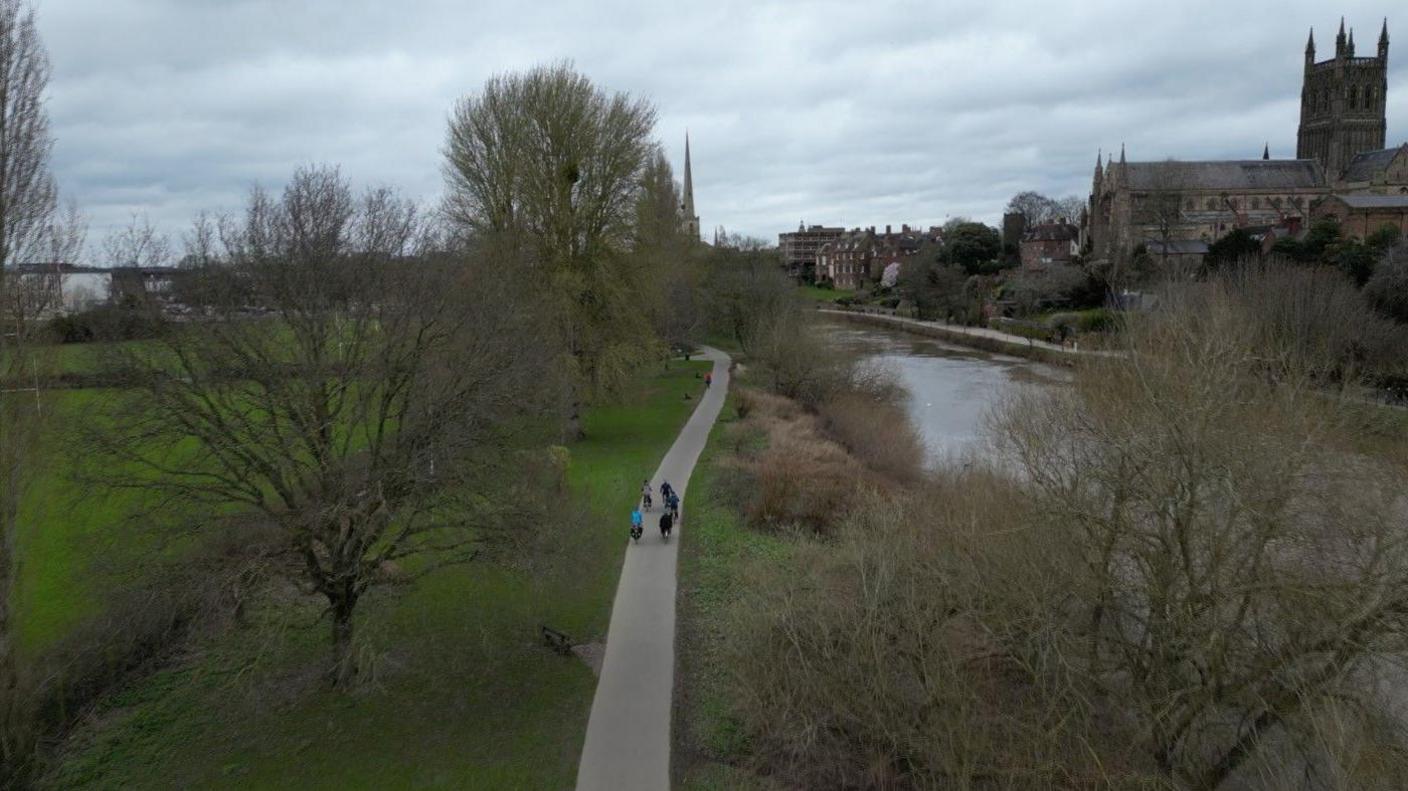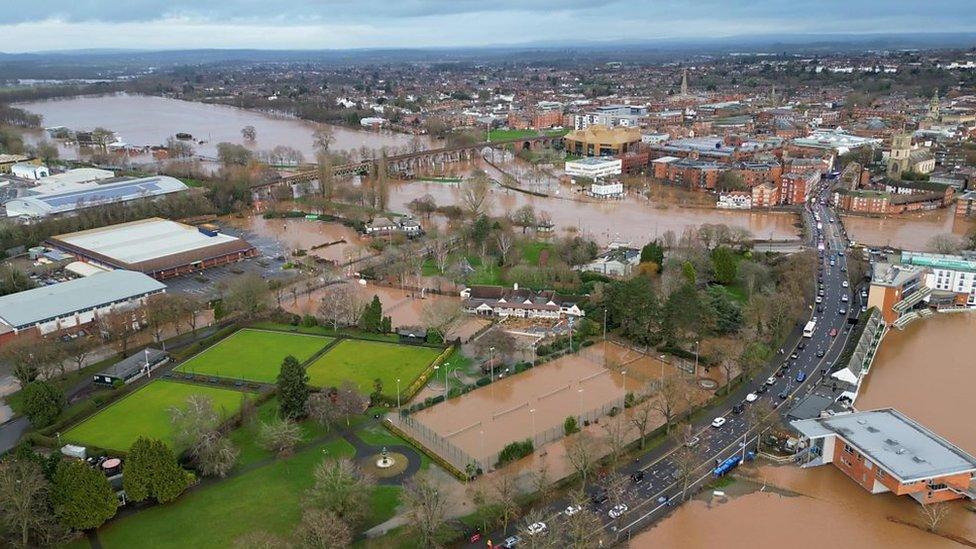Some cycle paths flooded for up to a month a year

Some paths were out of action for up to 20 days a year, research found
- Published
A Worcester cycling group has calculated cycle paths by the River Severn are now out of action due to flooding for up to a month a year.
Sam Underwood, from Bike Worcester, used river levels at Diglis to the south of the river to calculate how many days the flooded Severn covered the shared cycle and walking path alongside.
On average for the last five-year period he found paths were out of action for up to 20 days a year, compared to just 11 in the previous five-year period.
Since the council also has to hose down and clean up the paths after every flood, they remain inaccessible for even longer.
For those who use the paths this causes plenty of problems, not least, said Mr Underwood, actually knowing if when you set out, "you'll encounter a passable route or not".
Others, like Green city councillor Hannah Cooper, found the only choice when the path had flooded was to use the car.
"I absolutely hate it," she said.

Sam Underwood used river levels at Diglis to make calculations
Isabelle Michel said she ended up taking an alternative route cycling through the city centre "even though I'm not meant to".
Currently cycling through the pedestrianised city centre is banned.
The huge irony here is that it is cars and vehicles which are one of the major drivers of climate change, which is in turn driving the increase in both the number and intensity of floods.
Switching from a car journey to cycling is a small way to tackle a changing climate.
And while it can make sense to build ourselves out of trouble and protect homes or businesses with barriers, when it comes to something like cycle lanes or indeed many roads, that all becomes much harder.

Isabelle Michel has ended up taking an alternative route
As a short-term solution Danny Brothwell, from Bike Worcester, would like to see cycling through the city centre allowed again, so people have alternative routes available.
Although at the end of the month some rules banning bicycles from the city centre will lapse, others remain in place.
In an email to the BBC, Conservative Councillor Mike Rouse, Cabinet Member for Highways and Transport confirmed that "it seems there is still a ban in place for now".
Lifting the ban would offer cyclists a short-term fix to the problems caused by flooding.
But the longer-term question of what we do about increasingly vulnerable infrastructure, from cycle paths to roads to buildings, remains as unclear as the River Severn.

Danny Brothwell (left) has said he would like to see cycling through the city centre allowed again
Follow BBC West Midlands on Facebook, external, X,, external and Instagram, external, Send your story ideas to: newsonline.westmidlands@bbc.co.uk, external
- Published4 January 2024

- Published4 January 2024
